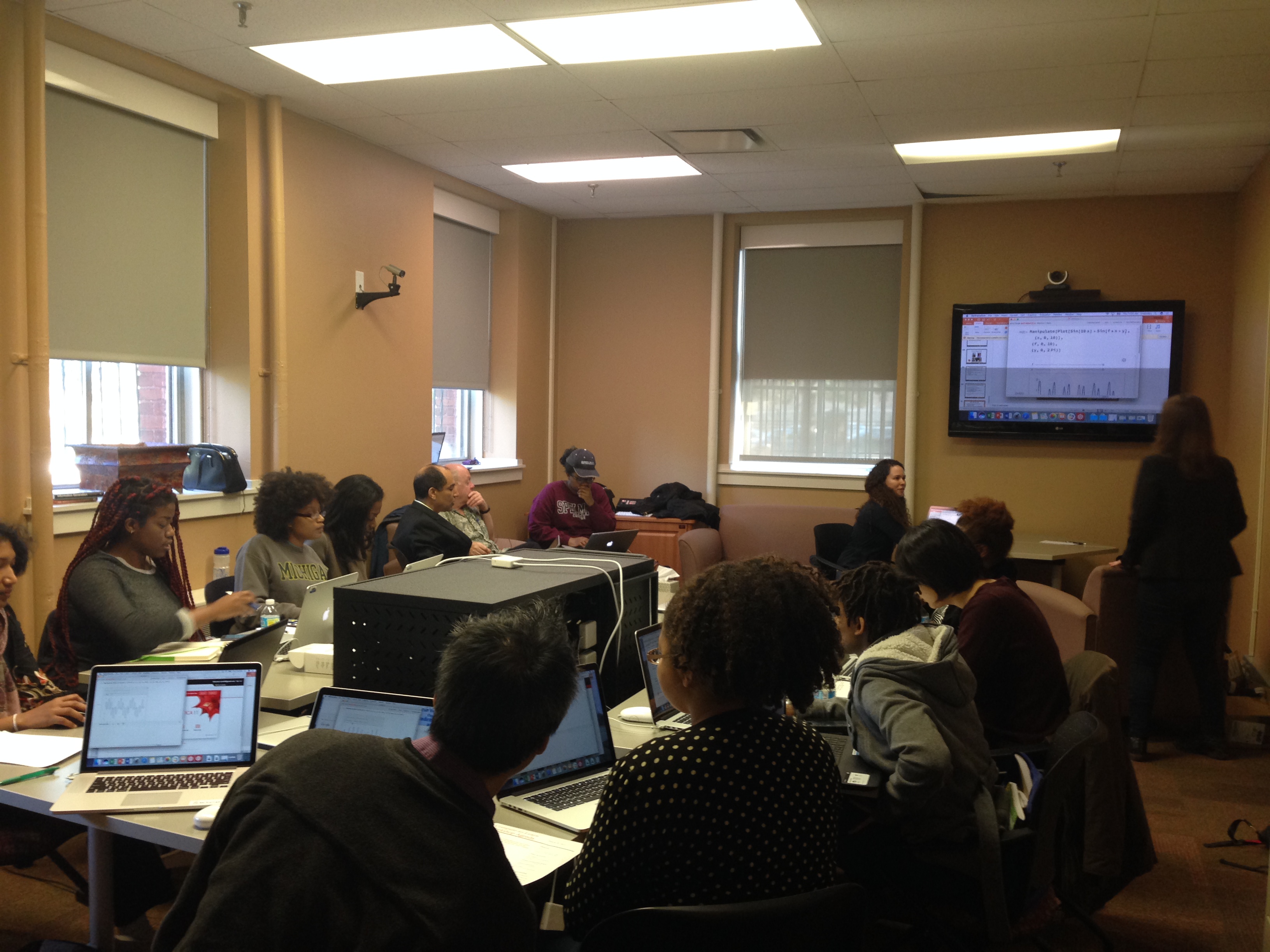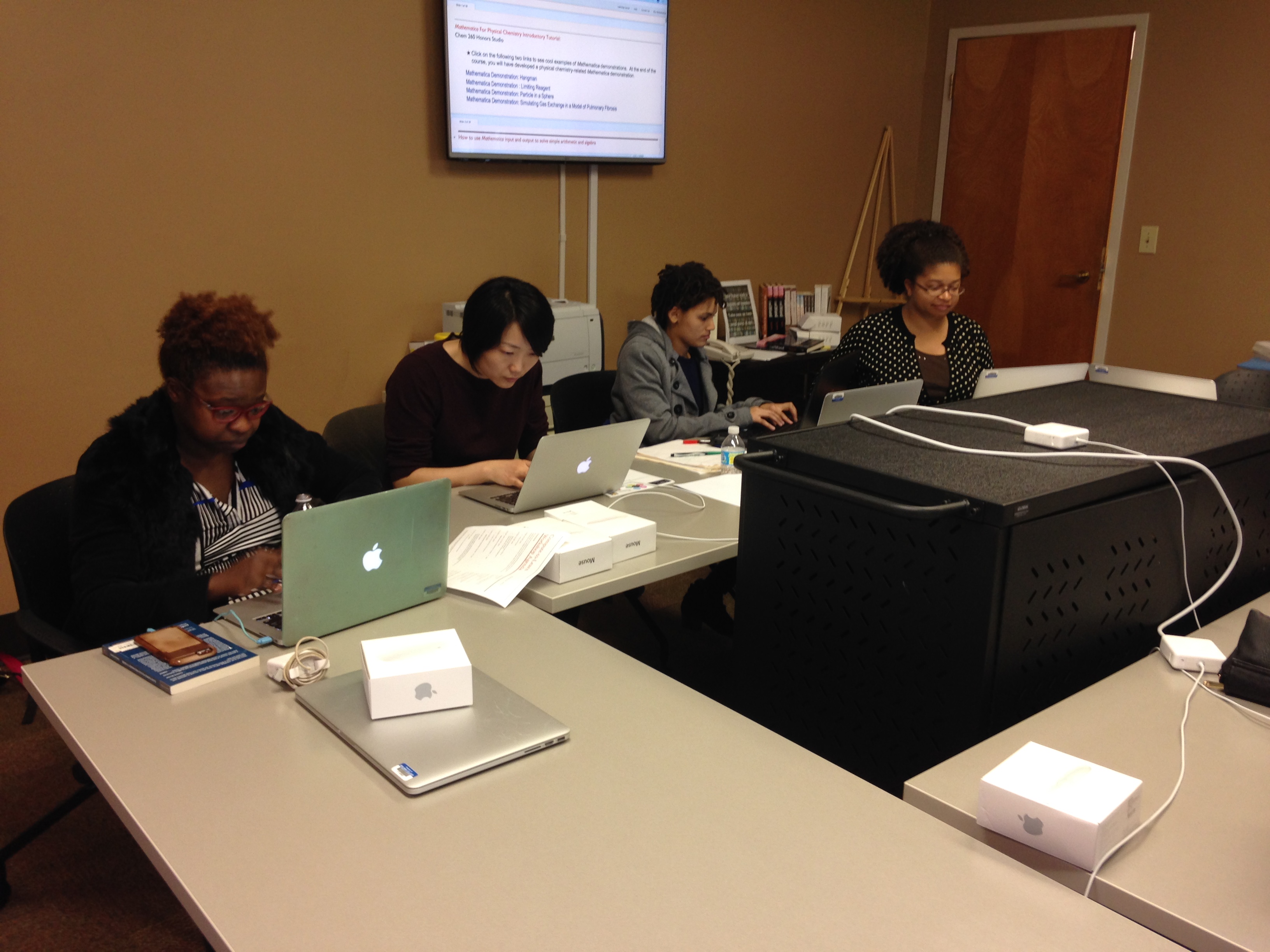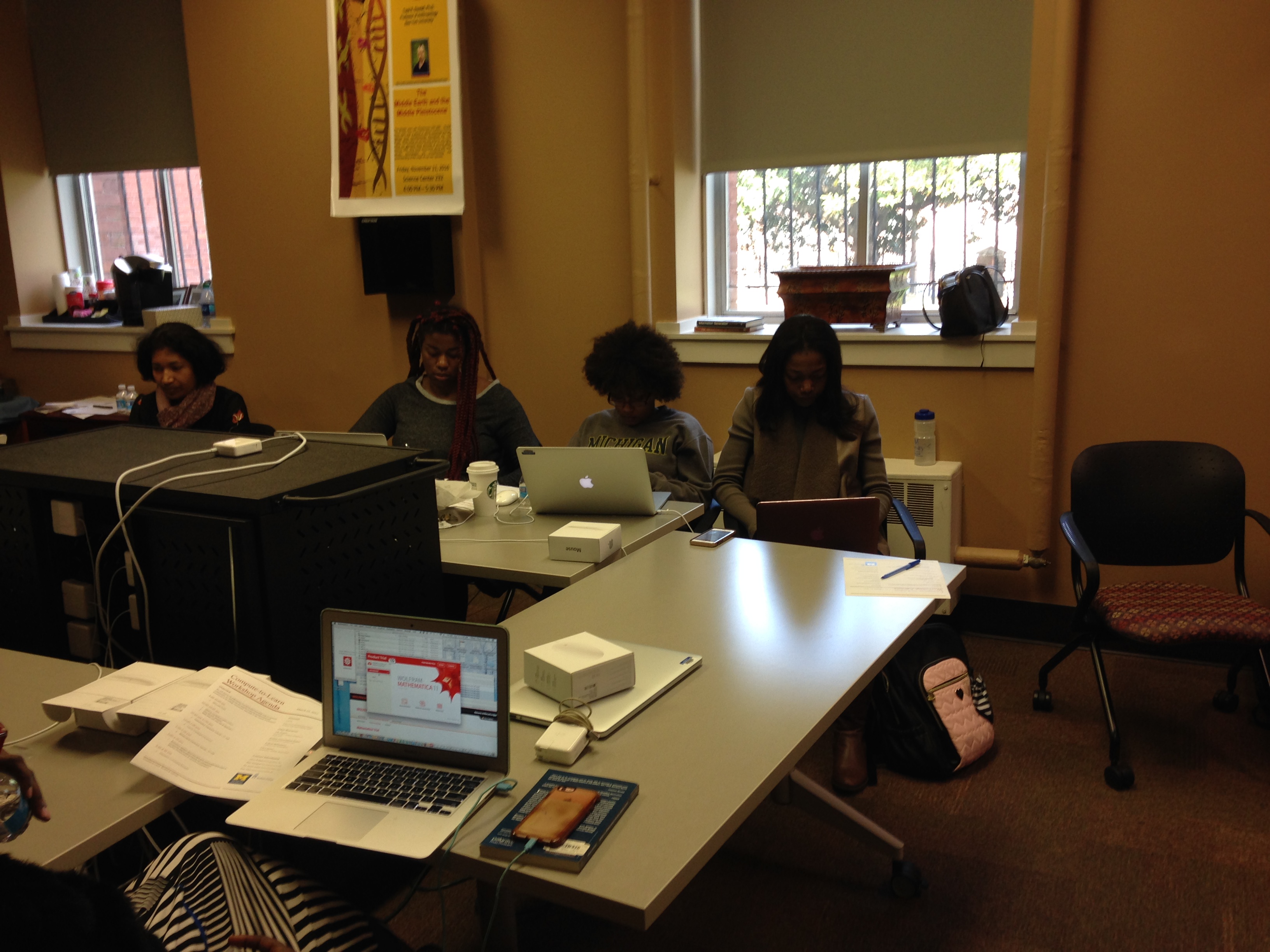News and Announcements
Click here to read about C2L in LSA News.
Compute-to-Learn Workshop at Spelman College in Atlanta, GA.
The Compute-to-Learn team led a collaborative, interactive workshop on student centered learning on March 23, 2017 at Spelman College in Atlanta, Georgia. Several faculty and students at Spelman participated in the workshop, which addressed how to integrate Mathematica modules into lectures and how to get students coding. Participants were from Chemistry & Biochemistry, Biology, Mathematics, and Economics.
About the Project
Compute-to-Learn Pedagogy
Compute-to-Learn activities stem from evidence-based, student-centered learning approaches, such as emphasis on real-world applications to promote students’ integration of new ideas, as well as authentic, collaborative environments that apprentice students as members of a scientific discipline (via practices such as explanatory writing and peer review).
Chem 230 and 260 Honors Studios
The “studio” nature of Chem 230H and 260H emphasize aspects of studio pedagogy from arts and architecture, in which students practice and refine their skills, while receiving constructive feedback and critique from more experienced peers. Accordingly, the Compute-to-Learn project relies on undergraduate Studio Peer Leaders who have successfully completed Chem 230H or 260H.
Wolfram Demonstrations Project
Consistent with other open courseware initiatives, all Compute-to-Learn demonstrations will be made publicly available to anyone with Internet access via the Wolfram Demonstrations Project, which provides a collection of user generated software visualizations relating to a number of disciplines.


